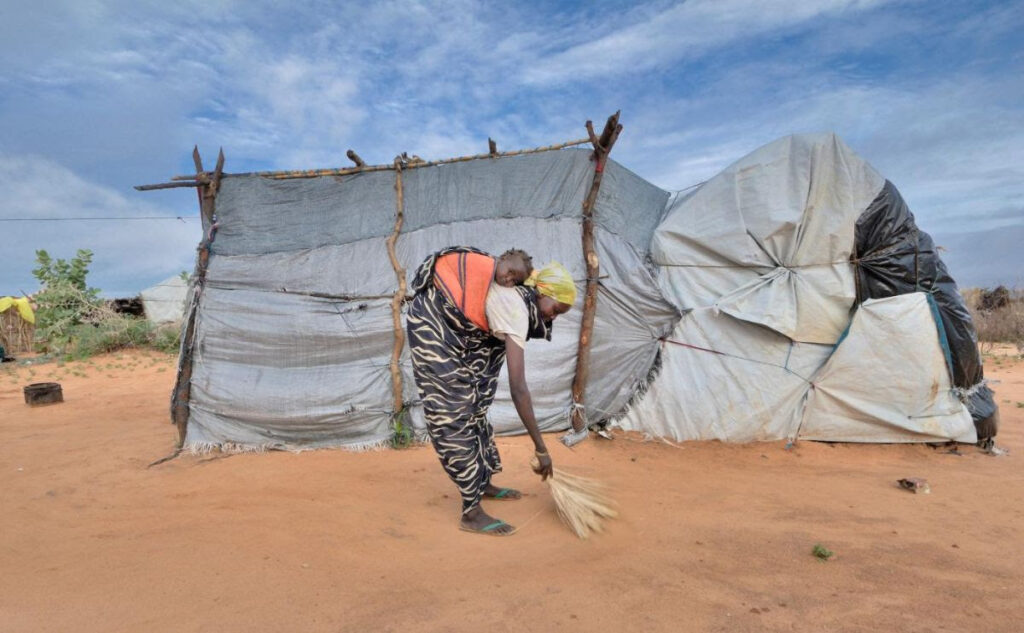
A woman sweeps the dirt around her home in the Dereig Camp for internally displaced persons, one of many such settlements for people displaced by the violence in Darfur. Photo: Paul Jeffrey/Life on Earth
| A webinar on 17 May featured people from Sudan who not only revealed the plight of the people in their nation but also expressed appreciation to churches and people of good will who have stood in solidarity with them. |
Most Rev. Ezekiel Kondo, primate of Sudan, reflected on how people have been coping amid many difficult situations, and the pastoral responsibility that has increased.
“I also reflect on what took place during this pastoral visit from the World Council of Churches and other organizations,” he said. “As a leader of one of these churches in Sudan, I really want to appreciate the commitment that you people have taken.”
The World Council of Churches led a delegation on a visit to Sudan from 18-22 April. The ecumenical group included included the World Council of Churches (WCC), All Africa Conference of Churches, ACT Alliance, Association of Member Episcopal Conferences in Eastern Africa Global Ministries, Fellowship of Christian Councils and Churches in the Great Lakes and Horn of Africa, General Board Global Ministries of the United Methodist Church, and Norwegian Church Aid.
“It was a crucial visit,” added Kondo. “Even the number of the participants in this meeting shows the seriousness of the support and the love you have for the Sudanese people and the churches.”
Zahra Hayder, a leading civil society leader and thinker in Sudan, expressed strong feelings that, even as Sudan tries to establish a stable government, “it doesn’t feel like there is a government because it’s like a war—it’s militia and army everywhere,” said Hayder.
“There is no civilian government,” said Hayder. “There is a lot of corruption happening and people are really suffering. I can tell you a lot, a lot of stories about that.”
Hussein Osman, programme director of Emergency Relief, Rehabilitation and Agency, said the situation is Sudan is desperate.
“Many families are still displaced, and others move from place to place, skipping from the fighting zone,” said Osman. “They need water, shelter, sanitation, and health facilities that the government lacks the capacity to provide.”
Osman added appreciation for the supplies as well as psychological and spiritual support that faith-based relief groups and churches have provided.
WCC programme director for Public Witness and Diakonia Rev. Dr Kenneth Mtata, who moderated the discussion, thanked the speakers for communicating messages from difficult places.
“I want us just to imagine that, out of the 71 million people that are internally displaced in the world, almost 10 million of these people are in Sudan,” he said.
